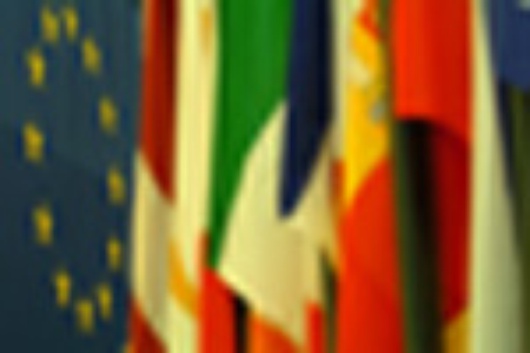1001 therapies for the fear of Europe
Published on
Translation by:
 katy waterman
katy waterman
This year, cafebabel.com launched Café Therapy – a series of online dossiers and discussions open to everybody aimed at helping understand the fears Europeans face in today’s society and discussing possible ways of overcoming them
 In the past few years the Old Continent has become infected with fear. Faith in plans for a united Europe has waned dramatically. After France and Holland voted No to the European Constitution, cafebabel.com prescribed a course of “coffee” for Europeans: meetings and debates throughout Europe, both online, in the form of in-depth dossiers and offline through public discussions. Today, we will present you with the solutions which arose from these discussions, through articles and interventions, interviews and opinions. The essence of Café Therapy.
In the past few years the Old Continent has become infected with fear. Faith in plans for a united Europe has waned dramatically. After France and Holland voted No to the European Constitution, cafebabel.com prescribed a course of “coffee” for Europeans: meetings and debates throughout Europe, both online, in the form of in-depth dossiers and offline through public discussions. Today, we will present you with the solutions which arose from these discussions, through articles and interventions, interviews and opinions. The essence of Café Therapy.
Multiculturalism: a sustainable reality?
The murder of Theo Van Gogh in Holland, the Islamic terrorist attacks in London and the riots in the Parisian suburbs have brought to light the problem of whether multiethnic and multicultural societies in Europe are sustainable. In the Netherlands the discussion led to a series of proposals for strict laws. Minister for Immigration Rita Verdonk “even went so far as to propose making the use of the Dutch language in the streets obligatory” writes Philip Ebels on cafebabel.com.
But the idea of multiculturalism is based primarily on tolerance. Yet this value must be integrated with new possibilities for immigrants, because, according to Aziz Senni, a French entrepreneur of Moroccan origin who was a guest at the discussion organised in Paris by cafebabel.com, “the only way to integrate young people from disadvantaged communities into French society is through work.” Senni is also the author of the book The Social Elevator is Out of Order . . . so I Took the Stairs and has suggested introducing measures of positive discrimination based not on race or religion, but where people live. The riots in the suburbs have left their mark.
The EU and Islam: so near and yet so far
“Fear of Islam does not exist, there is only a fear of the unknown” declared a Muslim participant at the opening of the discussion organised by cafebabel.com in Seville last November. It’s the forms of religious essentialism which we need to fight. “I fear Catholic fanaticism just as much as I fear Muslim fanaticism” added another participant. There are currently around 17 million Muslims in Europe. Religious riots have been sparked, but according to the Spanish theologian Juan José Tamayo, “religions cannot continue to be sources of conflict with one another nor with society. They must recognise and respect one another, and cultivate dialogue.”
From textiles to pollution: why be afraid of China?
According to Lu Yiyi, Head of Chatham House’s China Project, “the main problem in China-EU relations is the lack of a cohesive EU foreign policy towards China.” She also criticizes the EU’s fear of importing cheap goods from China as “ignorant.” She continues, “EU countries can take advantage of the financial liberalisation which is slowly taking place in China.” Criticism towards China regarding the high levels of pollution produced by Chinese industry is almost unbelievable considering America is not among those countries who have signed the Kyoto Protocol, a protocol which Beijing has signed. Moreover, points out Simon Borkin from London, the Chinese government has announced that China “aims to double its reliance on renewable energy by 2020.”
Devolution: all for one and one for all!
The process of European integration brings with it two conflicting trends: concentration of power in Brussels on the one hand, and a distribution of power among regional and local governments on the other. In Belgium, Frieda Brepoels, the Vice-president of the New Flemish Alliance, interviewed by cafebabel.com, maintains that “national sovereignty is a notion from the 18th Century; it cannot be the fundamental basis of Europe’s future.” She continues, “as a first step, we have to evolve to become a Europe of regions, a Europe where regions fully participate in the decision-making process.” Catalonia’s new statute for autonomy, recently approved by Spanish MPs, suggests that Barcelona is increasingly competent of supporting moves towards independence. Working towards this same goal, Zapatero is liaising with Basque officials to hopefully attain that peaceful era which Spain has been searching for since the 60s, when the first ETA attack took place. “Devolution is strongly linked to European integration: it destroys old identities in favour of new ones” writes Tiziana Sforza from Rome.
The EU pie. Everybody wants a slice.
The EU was born from the idea of creating “a European Coal and Steel Community, allowing the founding members to trade with one another freely across borders”, as Paul Hofheinz points out: a union which “would create peace and prosperity”. In 1986 even Spain discovered an important reference point in the EU in terms of the history of Franco’s regime. In the same way, enlargement to the East remains the only way to comfort those countries who lived through the tragedy of Stalinism. It is necessary to integrate the future Member States – like Bulgaria, Croatia and Romania – within a single market which, according to the Competition Commissioner of the European Commission, Neelie Kroes, will have “positive effects for everybody: for each Member State, for producers and for consumers”.
The return of nationalism
“Has a crisis-free Europe ever existed?” asks Martin T. Haberger, theatre actor and founder of the project Euroliteratour, which tries to increase cultural exchanges between Europeans. New nationalist moves which push for a return to the realpolitik of national interests are symptoms of a flagging EU. Samuele Pii, President of the Young European Federalists movement (JEF), suggests “confronting the problems differently, from a more international point of view.” Recognising a common value in Europe, not a foreign enemy.
Fleeing abroad
The alarm signalling brains on the run has sounded. But in a society in which it is necessary to be bilingual and in which student (and therefore brain) mobility is increasingly common, might this be a good thing? Would it not be a case of labelling it an exchange of brains on the move? Kevin Byrne, an English teacher in Japan, explains on cafebabel.com that, “the movement of European students and citizens is key to the cultural enrichment and the economic development of the continent.” The real strength of the EU will, therefore, lie within exchanges of people and of information.
And not all the students and workers who have left their homelands want to remain abroad. Just as Bernadett, a Hungarian student who is currently studying in Lund, Sweden, maintains, “I will leave at the end of the course to return to Hungary. I desperately want to find a job that I like in my own country.”
Translated from Le mille e una terapia contro le paure degli europei








